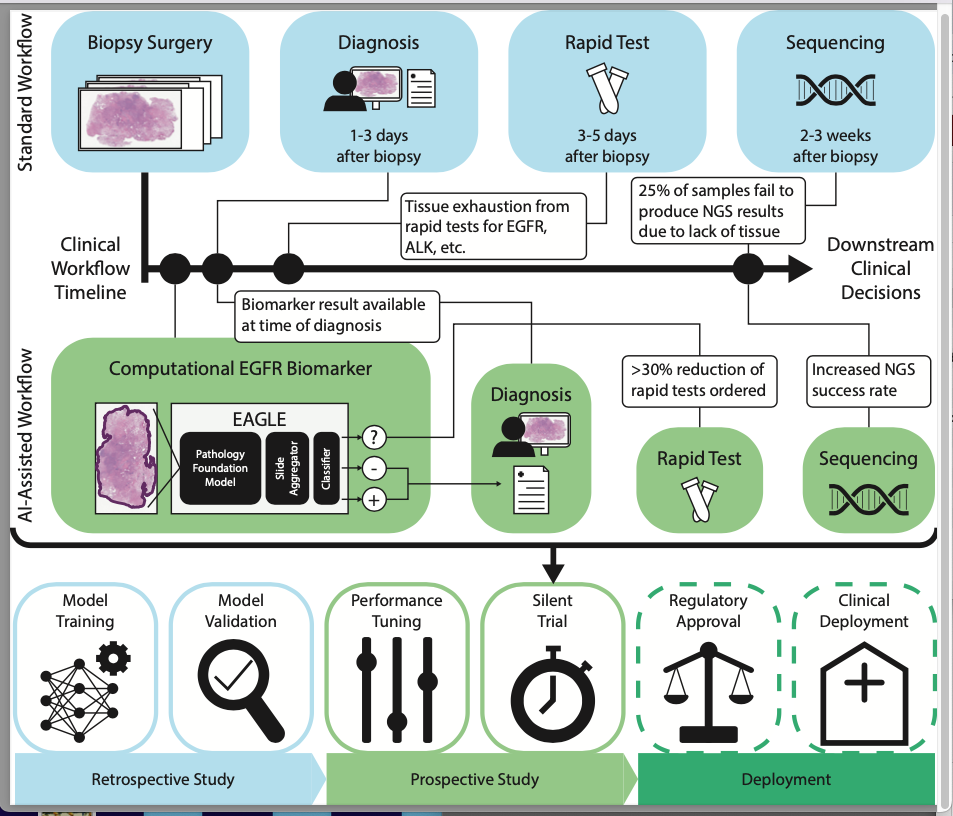
What You Should Know:
– A new study by researchers at the Icahn School of Medicine at Mount Sinai, Memorial Sloan Kettering Cancer Center, and collaborators, suggests that artificial intelligence (AI) could significantly improve how doctors determine the best treatment for cancer patients by enhancing how tumor samples are analyzed in the lab.
– The compelling findings, published in the July 9 online edition of Nature Medicine, demonstrated that AI can accurately predict genetic mutations directly from routine pathology slides, potentially reducing the need for rapid genetic testing in certain cases.
Revolutionizing Tumor Analysis for Lung Cancer
In the current workflow for lung cancer patients, rapid genetic tests are often performed first. These tests utilize limited tumor tissue, leaving about one in four patients without enough material for comprehensive next-generation sequencing—a critical step for guiding personalized treatment. These tests can also be expensive, time-consuming, and not always available, even at leading hospitals.
The new AI model offers a transformative alternative:
- Early Flagging of Mutations: Once pathology slides are digitized, the AI model can flag EGFR (epidermal growth factor receptor) mutations.
- Tissue Conservation: Based on the AI’s results, some rapid genetic tests may be avoided, preserving valuable tissue for more comprehensive sequencing, which is crucial for personalized treatment decisions.
- Faster Treatment Decisions: By predicting genetic mutations from standard H&E-stained pathology slides (a routine part of nearly every patient’s diagnostic workup), the AI could support faster treatment decisions without compromising quality of care.
“Our findings show that AI can extract critical genetic insights directly from routine pathology slides,” says study lead author Gabriele Campanella, PhD, Assistant Professor of the Windreich Department of Artificial Intelligence and Human Health at the Icahn School of Medicine at Mount Sinai. “This could streamline clinical decision-making, conserve valuable resources, and accelerate patients’ access to targeted therapies by reducing reliance on certain rapid genetic tests.”
The researchers trained their AI on the largest dataset of lung adenocarcinoma pathology slides matched with next-generation sequencing results from multiple institutions across the United States and Europe. They developed a novel AI model that fine-tunes large “foundation” models for this specific task of predicting EGFR mutations. Identifying these mutations is critical because they make tumors highly responsive to targeted therapies.
